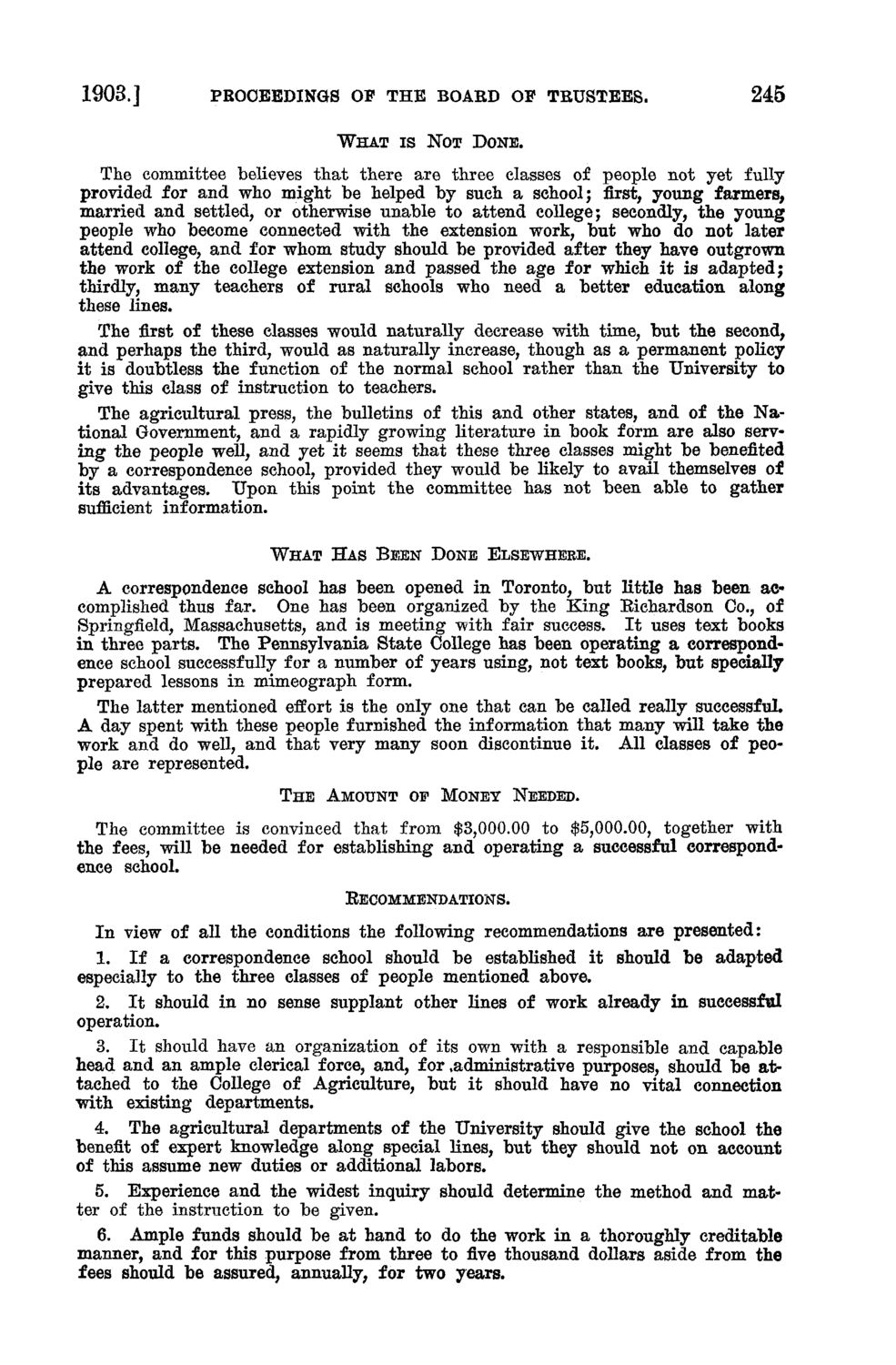| |
| |
Caption: Board of Trustees Minutes - 1904
This is a reduced-resolution page image for fast online browsing.

EXTRACTED TEXT FROM PAGE:
1903.] PROCEEDINGS OF THE BOARD OF TRUSTEES. W H A T IS N O T DONE. 245 The committee believes that there are three classes of people not yet fully provided for and who might be helped by such a school; first, young farmers, married and settled, or otherwise unable to attend college; secondly, the young people who become connected with the extension work, but who do not later attend college, and for whom study should be provided after they have outgrown the work of the college extension and passed the age for which it is adapted; thirdly, many teachers of rural schools who need a better education along these lines. The first of these classes would naturally decrease with time, but the second, and perhaps the third, would as naturally increase, though as a permanent policy it is doubtless the function of the normal school rather than the University to give this class of instruction to teachers. The agricultural press, the bulletins of this and other states, and of the National Government, and a rapidly growing literature in book form are also serving the people well, and yet it seems that these three classes might be benefited by a correspondence school, provided they would be likely to avail themselves of its advantages. Upon this point the committee has not been able to gather sufficient information. W H A T H A S B E E N DONE ELSEWHERE. A correspondence school has been opened in Toronto, but little has been ac« complished thus far. One has been organized by the King Eichardson Co., of Springfield, Massachusetts, and is meeting with fair success. I t uses text books in three parts. The Pennsylvania State College has been operating a correspondence school successfully for a number of years using, not text books, but specially prepared lessons in mimeograph form. The latter mentioned effort is the only one that can be called really successful, A day spent with these people furnished the information that many will take the work and do well, and that very many soon discontinue it. All classes of people are represented. T H E AMOUNT OF MONEY NEEDED. The committee is convinced that from $3,000.00 to $5,000.00, together with the fees, will be needed for establishing and operating a successful correspondence school. EECOMMENDATIONS. In view of all the conditions the following recommendations are presented: 1. If a correspondence school should be established it should be adapted especially to the three classes of people mentioned above. 2. It should in no sense supplant other lines of work already in successful operation. 3. It should have an organization of its own with a responsible and capable head and an ample clerical force, and, for .administrative purposes, should be attached to the College of Agriculture, but it should have no vital connection with existing departments. 4. The agricultural departments of the University should give the school the benefit of expert knowledge along special lines, but they should not on account of this assume new duties or additional labors. 5. Experience and the widest inquiry should determine the method and matter of the instruction to be given. 6. Ample funds should be at hand to do the work in a thoroughly creditable manner, and for this purpose from three to five thousand dollars aside from the fees should be assured, annually, for two years.
| |